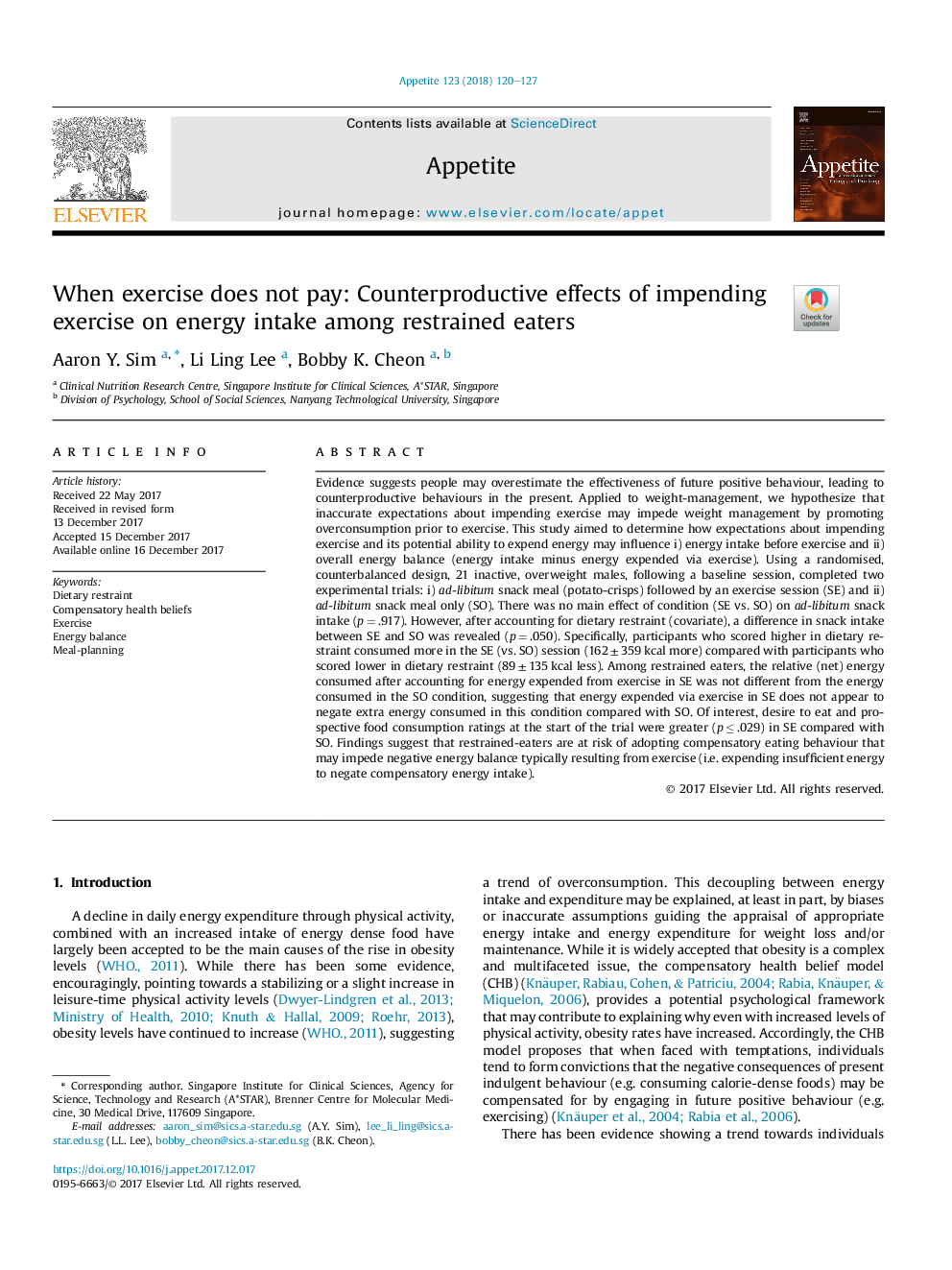ترجمه فارسی عنوان مقاله
هنگامی که ورزش پرداخت نمی کند: اثرات ضد تولید از تمرین قریب الوقوع در مصرف انرژی در میان صاحبان محدود
عنوان انگلیسی
When exercise does not pay: Counterproductive effects of impending exercise on energy intake among restrained eaters
| کد مقاله | سال انتشار | تعداد صفحات مقاله انگلیسی |
|---|---|---|
| 120292 | 2018 | 8 صفحه PDF |
منبع

Publisher : Elsevier - Science Direct (الزویر - ساینس دایرکت)
Journal : Appetite, Volume 123, 1 April 2018, Pages 120-127
ترجمه کلمات کلیدی
محدودیت رژیم غذایی، اعتقادات بهداشتی جبران کننده، ورزش، تعادل انرژی، برنامه غذایی غذا،
کلمات کلیدی انگلیسی
Dietary restraint; Compensatory health beliefs; Exercise; Energy balance; Meal-planning;

